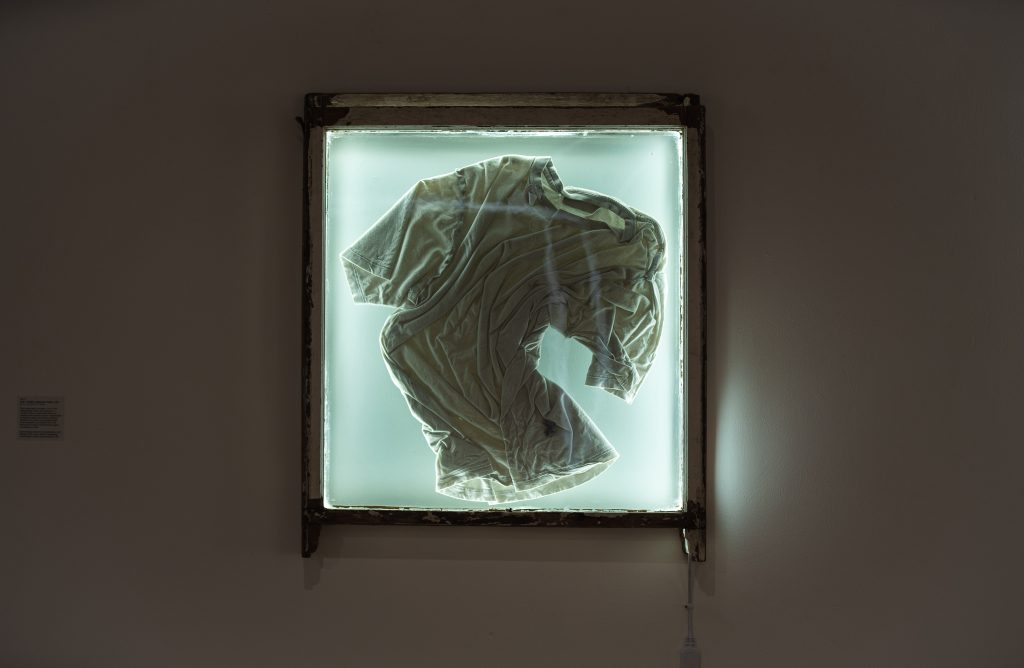What first came to mind when listening to philosopher and cultural theorist Professor Kwame Anthony Appiah’s Reith lecture on Creed is that it is delivered using highly intellectual language and subject-specific terminology. The talk was challenging due to its dense academic content, and due to its presentation on BBC Four, it could be assumed that the talk was intended for a more informed audience. After considering this, I reflected on how the accessibility of shared knowledge can ultimately impact who engages with it and how. This is significant when considering how lacking familiarity can hinder engagement with complex topics like Creed. Such reflections make me reconsider how I should approach discussions with my students, especially on topics like sustainability and the specific terminology used within the industry. Creed is interesting to consider within pedagogy as it’s less widely spoken about than, for example, race. However, according to the Student Profile Data at UAL (2023), 41.3% of students declared they have spiritual or religious beliefs. This statistic has increased by 1.34% since 2020.
Despite my atheistic beliefs, I recognise and value spirituality’s role in shaping human experiences and perspectives. Just as Professor Appiah highlighted the richness of diverse religious interpretations, I view the broad spectrum of spirituality, including atheistic spirituality, as integral in fostering holistic understandings. My atheistic spirituality allows me to appreciate the depth and breadth of human belief systems without being tethered to any one doctrine.
An audience member criticised Dr Appiah for interpreting religious scriptures through the lens of 20th-century fundamentalism. I found this point particularly interesting as it describes the historical context of the talk. This criticism reminded me of Dr Francesca Stavrakopoulou’s research, which I came across a few years ago, suggesting that the Hebrew Bible was a compilation of creative writings because earlier societies did not clearly distinguish between fiction and non-fiction. This could be likened similarly to the speaker’s comment about how fundamentalism regarding religious texts depends upon the point in history. This makes me think about my pedagogical practice, as much of the teaching is always encouraged to reflect the zeitgeist.
A comment from an audience member at SOAS University touched on Kwame’s identity as a gay man, prompting me to reflect on the intersections of my identity, religion, and feelings of exclusion. This could relate to my views of religion and feeling excluded, reinforced by Kwame’s later point, “I think many gay people have left religious traditions for this reason”. Grayson Perry was asked to speak as an ‘expert’ on identity. Controversially, students’ opinions on the Grayson Perry fashion and print project, which Grayson has hosted for several years at Central Saint Martins, have become negative. Feedback from students, which I’ve received first-hand, highlights their concerns that Grayson, despite his gender-related views, still categorises himself as a straight white man. Within fashion, identity is a recurring topic of research for my students. This also relates to the start of the lecture where Kwame discusses identity as a “boom in popularity in recent years” – where many individuals resonate with a social identity. Kwame’s later point describes how he thinks many individuals worldwide would be ‘sceptical of the claim’ that their religious identity is essential to who they are.
Thinking about implementing this into my teaching practices, a project surrounding religion could be an exciting starting point. Considering the current zeitgeist within fashion; Catholicism, Christianity, and Islam, in particular, have been referenced frequently. For example, Patrick McDowell’s “Catholic Fairytales” collection, released in 2021, or Hussein Chalayan’s Spring 1998 collection, a British designer of Turkish Cypriot descent, showcasing European models in yashmaks to explore his experience of growing up amongst a Muslim culture. There is also a rising popularity in modest dressing, which I have seen more of in recent years in student projects. This lecture could be the starting point for this project, prompting students to examine their personal and social identities and how these shape their fashion outcomes. Students could examine their outcomes by asking whether the result is educating, preaching, or discussing religious identity or identity, in general, should be a freedom of speech and expression within their work.
Bibliography
‘Creed’ (2016) The Reith Lectures, BBC, Radio 4. [online] Available at: https://www.bbc.co.uk/programmes/b07z43ds (Accessed: 30th July 2023)
Murray-Nag, B. (2020) Patrick Mcdowell: How I Created My First Fully Digital Fashion Collection, Eco-Age. [online] Available at: https://eco-age.com/resources/patrick-mcdowell-digital-fashion-collection/ (Accessed: 30th July 2023)
Pounds, G. (2016) ‘Subverting The Avant-Garde: Nudity and Inferiority in Hussein Chalayan’s Spring/Summer 1998 Collecti’, The Courtauldian. [online] Available at: https://www.courtauldian.com/single-post/2016/03/04/subverting-the-avantgarde-nudity-and-inferiority-in-hussein-chalayan-s-springsummer-1998 (Accessed: 30th July 2023).
(2023). ‘UAL Student Profiles: Characteristics’. Available at: https://dashboards.arts.ac.uk/dashboard/ActiveDashboards/DashboardPage.aspx?dashboardid=5c6bb274-7645-4500-bb75-7e334f68ff24&dashcontextid=638264972209882060. (Accessed: 30th July 2023)
University of Exeter (no date). Staff profiles. [online] Available at: https://theology.exeter.ac.uk/staff/stavrakopoulou/ (Accessed: 30th July 2023).

